23.04.20
After emerging in March of 2020, the coronavirus dominated our country, our society and our economy for months on end. Suddenly, our daily lives are governed by the social distancing measures the government has been forced to impose, measures that have a significant economic impact. Companies have to temporarily close their doors, workers have to temporarily be furloughed, and financial projections for 2020 – and beyond – have to be sharply adjusted everywhere. We are living through an unprecedented crisis, one that will function as a turning point in our society.
With our ‘Spotlight on corona’ blog series, Callebaut Collective takes a closer look at a number of business strategy approaches during times of crisis. How should companies strategically respond to the corona crisis and periods of lockdown? What role do interpersonal relationships play in the context of corona? How can companies prepare for the new business context once the economy reopens? What impact is corona having on Belgium’s position in particular industries globally? Because one thing is certain: nothing will ever be the same again.
After the corona lockdown was introduced a couple of weeks ago, the majority of industries that make up the Belgian economy ground to a halt. It was a hard blow for the many companies that are struggling to keep their heads above water at the moment. Today those same companies are – understandably so – sounding the alarm: after one month of inactivity, it is high time to relaunch. It is obvious that it is important for our economy to be revived. But how this will go exactly remains unclear at the moment. This is why it is more important than ever for companies to be thinking about the future in this current moment. What we mean by that is: post-lockdown. Because even after we restart the country, the impact of COVID-19 will certainly continue to reverberate for some time: the crisis we are currently living through will be the tipping point for a new normal, a different society that will not be the same as the old one. How do you prepare yourself for (business)life post-corona?
Corona can teach us something; that much is certain. It is why we should not view this crisis only as a threat, but use it as an opportunity to critically re-examine our business and to creatively look for other ways to market our products or to even develop new solutions that better suit the post-corona context. A service logic – so when products or “goods” are viewed as distribution mechanisms for the provision of services – can serve as a useful framework for such efforts.
Corona as an endorser of service logic thinking
Today’s customers are no longer interested in only products, but are asking for a range of service solutions that go together with this product family. The crisis that COVID-19 is currently provoking has only further strengthened this development. This evolution from a product to a service logic is forcing companies to reconsider their fundamental business logic by devoting more attention to crucial service aspects, and in this way redefining their idea of value creation.
The current corona context has made the need to transition to a service logic framework highly urgent for many companies. Traditional consumption models after all are more under pressure now than ever before. This not only implies that businesses need to find a new balance between offline and online, but also that they must redefine a type of consumption that is centred around flexibility. Because consumers want to be able to choose where, how and how much they consume and pay. Business models like Xaas “everything as a service”, D2C “direct to consumer” and platformisation respond to these new consumer expectations.
This service logic framework calls for an open view on collaboration, one where we longer think and act within the walls of our own organisation, but instead mount an ecosystem of knowledge-exchanging partners in order to together arrive at relevant value propositions. And the current crisis situation precisely offers us the opportunity to explore such partnerships and to deepen your B2B relationships.
Toward an ecosystem: now is the time to work on your B2B relationships
To be able to offer renewed market propositions via strong partnerships post-corona, it is crucial that companies work on their B2B relationship strategy now. During this exceptional period, your B2B customers have both space in their agendas and the mental room to reflect on the future together with you. The needed switch to a service logic is moreover also a topical and real issue for them. In other words, this is the ideal moment to strengthen your B2B relationships at a high level with a view to the future of both parties. And do not just think about clients here but also suppliers, business partners and perhaps even friendly industry competitors. Because together we can learn how to approach relationships differently – even when this is over – allowing us to prepare for a new era together.
But how do you deepen relationships under the current circumstances? Simply engage in a conversation with your B2B relationships. The situation simply is what it is in these times of crisis, but it could be the opportunity for both parties to engage in a high-level dialogue. Not a casual conversation with a commercial angle or a sales intention, but a strategic one-to-one, driven by empathy and a belief in collaboration:
Take the time to get to know the branch in which the client or business relationship is active? What challenges are they facing? What do they expect from the future? And from you? In short, understand them better.
Draw the connection to your proposition. Explain your story and vision on the business and how this can bring your client added value. Where do the two overlap?
Exchange thoughts about wider industry evolutions and seize the opportunity to reflect on the future together in this moment. What will the post-lockdown perspective bring and what role do we want to play in this new era together? Can we offer new, relevant services together, based on service thinking, based on the integration of digital and human? How can closer collaboration offer us both advantages? Where can we help each other? Take a strategic look ahead, explore the branch in depth and look for the right future perspective.
Through this type of video-call conversation, you will both gear up not just for the future, but also show deep involvement and commitment as a business to come out stronger together after the lockdown, after corona. And more than anything, you arrive at valuable value propositions to be able to better serve the end customer and to become future proof.
Because although every sector is feeling the impact of the crisis, its outcome will be different for every branch. For instance, the current prediction is that car sales will be marked by a slightly downward trend after the crisis, but this can be an opportunity for car sellers to expand their mobility services. Just think of mobility-as-a-service (MaaS) here: mobility will increasingly develop into a tailor-made user service, with use of the most efficient means of transport rather than owning a vehicle the ultimate goal. Services like car sharing are very much a response to this. The healthcare industry on the other hand is expected to significantly grow in the coming months: awareness of health issues and, more specifically, of self-care – both preventive and in-the-moment – has been growing for some time now and will only increase because of and after corona. Now is the time for health industry actors to already start thinking about how they could respond to this from a service logic angle and for instance develop subscription models to relieve consumers of their worries as much as possible.
Can Callebaut Collective assist with the strategic planning process of your business, or reflect on your industry and larger developments together with you? Do not hesitate to get in touch with us. Not a single company or industry will be able to rely on a ready-made answer as to what the future will bring. But let this crisis serve as an opportunity to proactively reflect on this question and to strengthen your relationship with your customers in doing so. So that we can be ready for post-corona.

